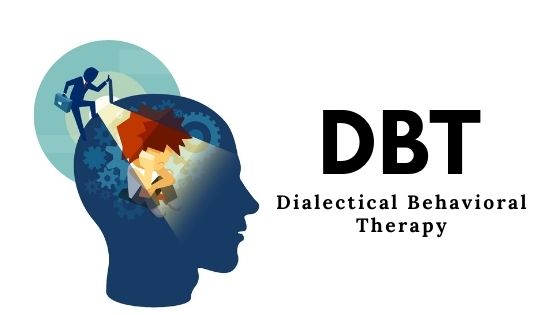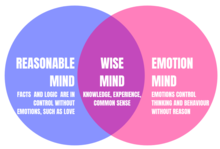Empowerment Via DBT London: Structure Durability, Finding Balance
Empowerment Via DBT London: Structure Durability, Finding Balance
Blog Article
Equipping People Via Effective Dialectical Behaviour Therapy (DBT) Solutions: Structure Stronger Mental Wellness Foundations
In the realm of mental health and wellness and wellness, the significance of empowering individuals with efficient Dialectical Behavior Therapy (DBT) solutions can not be overstated. By concentrating on the core principles of DBT, such as improving psychological law skills, improving interpersonal effectiveness, building distress tolerance techniques, and growing mindfulness techniques, people can start a journey towards building stronger mental health structures. The influence of DBT surpasses plain signs and symptom administration; it uses an alternative technique that outfits people with the tools needed to navigate life's obstacles with resilience and self-awareness. As we discover the transformative possibility of DBT in equipping individuals to lead more meeting lives, the course to boosted psychological health and wellness and well-being becomes an engaging narrative that beckons expedition.
Understanding the Core Concepts of DBT


One core principle of DBT is validation. Another basic facet is dialectics, which instructs people to watch situations from multiple point of views and locate the synthesis between conflicting ideas or feelings.
Additionally, the idea of dialectical abstaining is main to DBT. This principle urges individuals to avoid self-destructive habits while additionally approving themselves. By recognizing and including these core principles, therapists can efficiently execute DBT strategies and support individuals in their journey towards emotional regulation and mental wellness.
Enhancing Emotional Policy Skills
Establishing efficiency in handling emotions is an essential facet of cultivating emotional health and interpersonal efficiency - DBT London. Enhancing emotional policy skills is a core component of Dialectical Behaviour Therapy (DBT) that gears up individuals with the tools to browse extreme feelings in a healthy and balanced and useful way. Via DBT, individuals find out to recognize, recognize, and control their emotions, resulting in improved psychological health outcomes
DBT stresses the value of mindfulness, which includes being present in the moment without judgment. This practice allows people to observe their emotions without becoming bewildered by them, improving their capacity to react successfully as opposed to react impulsively. By growing mindfulness, individuals can develop a greater feeling of self-awareness and emotional control.
Furthermore, DBT educates functional skills such as distress tolerance and feeling guideline techniques to aid individuals take care of difficult feelings. By learning these skills, people can decrease spontaneous habits, enhance decision-making, and reinforce their connections with others. Ultimately, improving emotional guideline skills via DBT equips people to lead more satisfying and balanced lives.

Improving Interpersonal Performance
Having actually developed a solid structure in psychological policy skills within the framework of Dialectical Behaviour Therapy (DBT), the focus currently shifts towards enhancing interpersonal effectiveness. Improving social effectiveness is an essential element of DBT as it gears up individuals with the necessary abilities to browse social communications, communicate effectively, established limits, and develop healthier relationships.
In DBT, interpersonal effectiveness skills are educated with modules that focus on locations such as assertiveness, effective interaction, and social analytical. By learning these abilities, people can improve their go to my site capability to express their needs and needs, keep self-esteem, and develop stronger links with others.
Exercising mindfulness is an important component of improving social effectiveness within the DBT structure. Mindfulness allows individuals to be existing in their interactions, pay attention proactively, and respond attentively as opposed to respond impulsively. By incorporating mindfulness into their day-to-days live, people can grow higher self-awareness and emotional guideline, which are crucial for successful social interactions.
Building Distress Tolerance Strategies
Exploring reliable techniques for taking care of emotional distress is vital for people seeking to enhance their coping abilities and resilience. Building distress resistance strategies is a vital facet of Dialectical Behavior Treatment (DBT) that encourages individuals to navigate difficult feelings without becoming overloaded - DBT London. One fundamental technique in DBT for distress tolerance is the phrase "APPROVES," which means Activities, Adding, Contrasts, Feelings, Pressing away, Ideas, and Sensations. By using these strategies, individuals can properly deal with upsetting circumstances and control their psychological feedbacks.
In addition, mindfulness techniques play a substantial duty in building distress resistance. Mindfulness urges people to stay present in the minute without judgment, permitting them to observe their ideas and feelings without responding impulsively. This recognition makes it possible for people to tolerate distress better and develop a better feeling of control over their actions.
Along with these methods, producing a customized distress tolerance plan with the guidance of a trained specialist can provide people with a tailored method to managing psychological distress - DBT London. By integrating these methods into life, people can reinforce their psychological health structures and boost their general well-being

Cultivating Mindfulness Practices
To deepen their distress tolerance strategies better, individuals can concentrate on growing mindfulness practices as a complementary technique within the structure of Dialectical Practices Treatment (DBT) Mindfulness, a key element of DBT, entails taking notice of the here and now moment without judgment. By fostering mindfulness, individuals can improve their understanding of ideas, more information emotions, and bodily feelings, promoting a deeper understanding of themselves and their experiences.
Mindfulness techniques in DBT consist of techniques such as mindful breathing, body scans, and observing thoughts without attachment. These practices urge people to create a non-reactive stance towards their inner experiences, allowing them to respond to tough situations with greater clarity and calmness. By including mindfulness right into everyday routines, people can find out to control their emotions much more successfully, minimize impulsive behaviors, and grow a feeling of inner peace.
Via growing mindfulness methods, individuals going through DBT can develop a solid structure for managing stress, boosting relationships, and improving overall health. By incorporating mindfulness into their therapeutic trip, individuals can create valuable abilities that empower them to browse life's difficulties with resilience and self-awareness.
Conclusion
Finally, efficient Dialectical Behavior Treatment (DBT) services play a vital function in empowering individuals to build more powerful mental wellness foundations. By understanding the core concepts of DBT, enhancing emotional policy skills, enhancing interpersonal efficiency, building distress tolerance strategies, and cultivating mindfulness techniques, individuals are equipped with the needed tools to browse their emotions, connections, and difficulties in an extra adaptive and resistant fashion. DBT services provide a comprehensive approach to promoting psychological health and empowering individuals to lead meeting lives.
By focusing on the core principles of DBT, such as boosting emotional policy abilities, boosting interpersonal efficiency, building distress tolerance methods, and growing mindfulness techniques, individuals can begin on a trip in the direction of building Click Here more powerful psychological wellness foundations. Enhancing emotional policy abilities is a core element of Dialectical Practices Treatment (DBT) that equips individuals with the tools to browse extreme feelings in a healthy and balanced and constructive way.In addition, DBT teaches useful skills such as distress resistance and emotion policy methods to assist people take care of difficult feelings.To deepen their distress tolerance techniques even more, individuals can focus on cultivating mindfulness practices as a complementary method within the framework of Dialectical Behaviour Therapy (DBT) By understanding the core principles of DBT, improving psychological guideline skills, boosting social performance, building distress tolerance techniques, and cultivating mindfulness techniques, people are outfitted with the essential devices to navigate their feelings, relationships, and obstacles in an extra resilient and flexible fashion.
Report this page